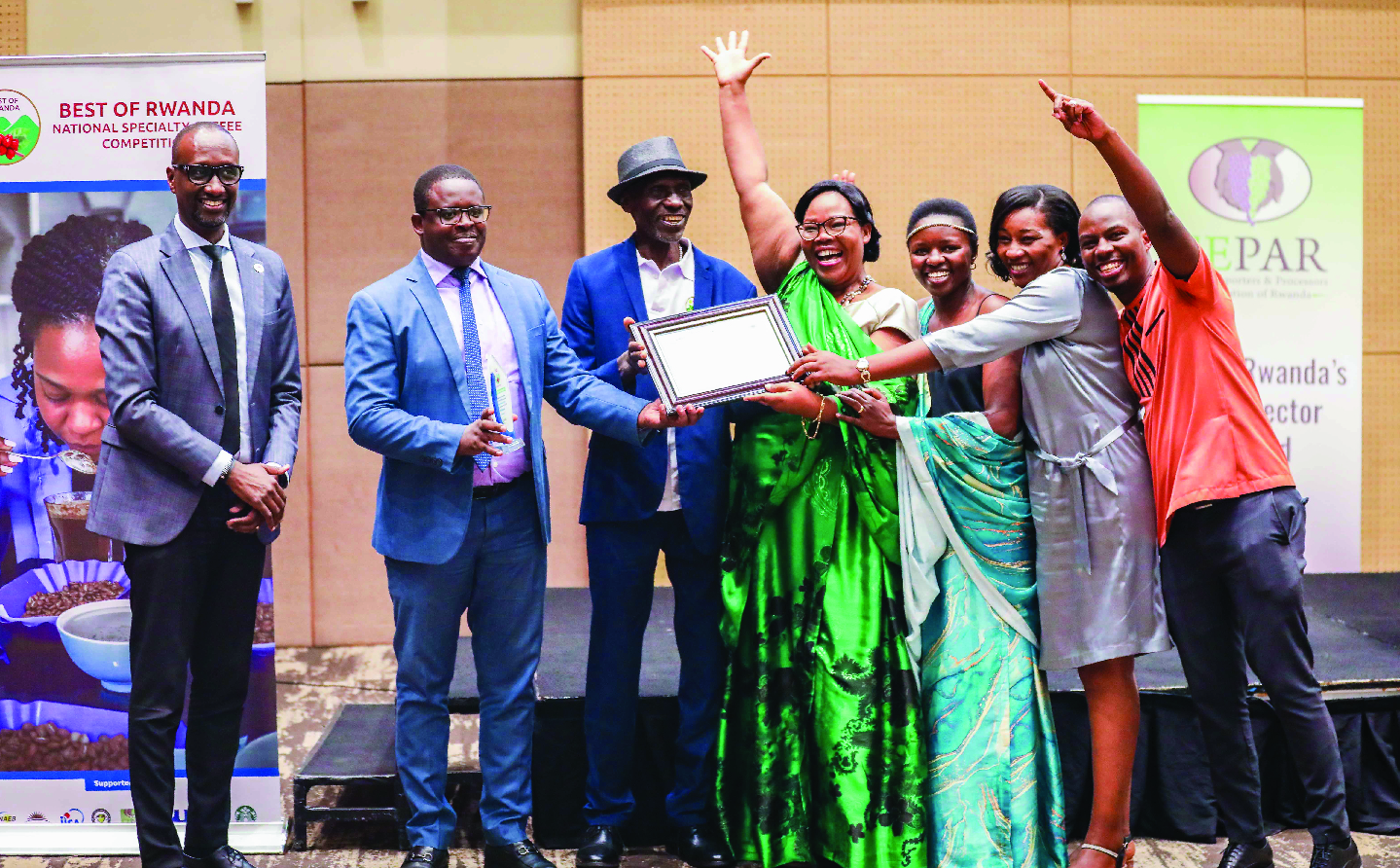JICA intervention in Agriculture sector in Rwanda
Background
The agriculture sector shares 24% of Gross domestic product, Employs 62.2% of the labor force in Rwanda. The average land size per household is 0.5ha and total agriculture land is 1.4 million Ha. Rwanda is one of the densely populated countries with 571 per Km2 and the agriculture in Rwanda is majorly rainfed. Over the last two decades, through the Strategic Plan for Agriculture Transformation (PSTA) Rwanda has been aiming to transition from subsistence agriculture to market oriented agriculture and remarkable progress has been made. JICA has been part of this Journey through various cooperation responding to Rwanda’s aspiration in Agriculture sector including supporting irrigation infrastructure, its operation and maintenance, promoting business and market-oriented agriculture as well as enhancing capacity of counterpart institutions.

Ongoing projects
1. The Project for water management and Capacity building (WAMCAB)
- Type of Cooperation: Technical cooperation project
- Duration: March 2019 to February 2025
- Target Irrigation Schemes: Cyaruhogo irrigation Model, Rwamagana District, Ngoma 22 irrigation scheme, Ngoma District & Ngiryi and Nyabuyogera Marshland, Gisagara District.
- Counterparts: IWUOs and Cooperative members working in those schemes, RAB officers, District and Sector Agronomists
JICA has been involved in setting up irrigation infrastructure in Ngoma and Rwamagana in Eastern Province of Rwanda (hyperlink to connect the past 2 grant aid projects) to increasing productivity of farmers in the driest part of the country and improve social economic life of farmers in that place. Based on the successful completion of these constructions, the Government of Rwanda has requested JICA to support the capacity building of farmers in constructed schemes in operation and maintenance of those infrastructure. WAMCAB project has been formulated to respond to the farmers' needs in effectively managing irrigation water and infrastructure.
The project has supported about 4500 farmers access improved irrigation for their farming activities in in Ngoma, Rwamagana and Gisagara districts. (The project is subdivided in sites located in Ngoma district 435 ha belonging to 1760 people, Rwamagana District 265 ha belonging to 1164 people in Gisagara District 109 ha belonging to 1540 people. It counts 109 hectares of irrigated land used in horticulture and 868 hectares in rice). The project strengthens the Irrigation Water Users Organization (IWUO) in target schemes to properly take care of infrastructure and equitably share water to all farmers. This has improved farmers' mindset on the importance of IWUO and they actively contribute and pay water fees.
2. The project for Strengthening and Promoting Coffee Value Chain (CUP2)
- Type of Cooperation: Technical cooperation project
- Duration: October 2021 to October 2025
- Target Counterparts:
- Coffee Cooperatives: KOPAKAKI DUTEGURE (Karongi District), ARABICA COFFEE, Ruhango District, KOAKAKI, Kirehe District
- Coffee association such as CEPAR & RCCF, Barista network
- NAEB & RAB counterpart officers
Coffee plays a key role in the economy of the country, contributing to the foreign exchange earnings and to the monetization of rural economy. However, due to small land holding in Rwanda most of coffee producers are smallholder farmers with 200 or less coffee trees per household Rwanda finds its comparative advantage in producing high quality coffee which can fetch higher price on international market.
To respond to the Rwandan aspirations, in 2017, JICA launched the first coffee project under the name of “Coffee Upgrading and Promotion in Rwanda” which was known as CUP in short for a period of three years (hyperlink for CUP1). Given important milestone set by the project, the government of Rwanda requested JICA to sustain the project achievement through CUP2. On top of KOKAPAKI DUTEGURE from CUP1, JICA is supporting two more cooperatives to become model cooperatives including “Arabica coffee” in Ruhango District and “KOAKAKI” in Kirehe District. It has also continued to research on high value coffee variety through experimental farms set in various corners of the country. The goal of the research is to confirm the quality of those line tried in different microclimate and utilize it to position the uniqueness of Rwandan coffee on international coffee market.
3. Agriculture Policy Advisory service
Type of Cooperation: Embedded Technical Cooperation Individual Expert
Target Counterparts: MINAGRI Planning Directorate
In 2019 JICA and MINAGRI started a cooperation program to dispatch a policy advisor to be embedded in the Ministry. The overall goal is, to contribute to policy formulation improvement in MINAGRI. Over the last 4 year it has contributed to:
- Formulation of Nutrition improvement through agriculture transformation yen loan program,
- Midterm review of PSTA 4,
- Formulation of Irrigation Strategic Plan which streamlined the experience and achievement of WAMCAB.






scroll